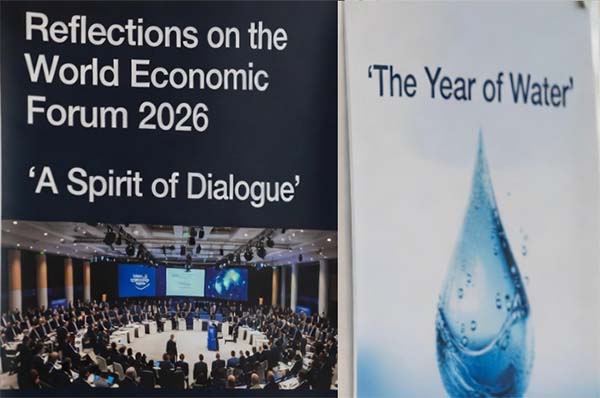 Najmuddin A. Farooqi
Najmuddin A. Farooqi
The world is experiencing a historic watershed moment. The geopolitical order established in the aftermath of World War II shaped by Cold War alignments and superpower dominance is unraveling. What will replace it remains uncertain, but one truth is evident, in this emerging global landscape survival will not hinge on ideological alignment or inherited alliances but on preparedness, technological capacity and strategic independence.
Recent conflicts in Ukraine and Gaza have revealed the harsh realities of contemporary power struggles. These crises have exposed the vulnerability of states caught between rival powers or fractured by internal divisions. They have also demonstrated the dangers of two opposing extremes: unrestrained militarism on one hand and incoherent or symbolic resistance on the other. In a world where diplomacy is increasingly underwritten by force, nations must equip themselves technologically, militarily and psychologically for autonomy and defense. The core lesson is clear do not be the aggressor but never be unprepared.

This is no longer a matter of monarchy versus democracy or East versus West. The real question is whether nations can defend their sovereignty in a world where global power is more fragmented, militarized and unpredictable. Unchecked militarism, like that pursued by Israeli Prime Minister Benjamin Netanyahu, has led to international condemnation and deep internal strife. A senior journalist recently observed, “When Netanyahu says he wants to conquer Gaza, he really means Israel” a warning about his growing control over national institutions, including the IDF. His approach risks isolating Israel further and undermining its democratic foundations.
Conversely, non-strategic resistance such as that pursued by Hamas has resulted in catastrophic consequences for Palestinians. Lacking both military parity and coherent long-term strategy such movements have invited devastating retaliation while achieving little progress. Both approaches Netanyahu’s militarized overconfidence and Hamas’s reactive resistance exemplify failed leadership in a time that demands clarity and vision.
Renowned economist Richard D. Wolff has characterized this period as a “watershed moment in Israel’s history,” citing a convergence of economic inequality, political dysfunction and growing social fragmentation. In his view Israel faces a “historic impossibility”, a state unable to reconcile its internal contradictions while drifting further from international legitimacy. Expansionist myths such as the idea of a “Greater Israel” are growing obsolete in a multipolar world.Israel like many other states now faces the consequences of acting on outdated geopolitical assumptions.
Meanwhile the global power map is shifting. While the United States, China, Russia and the European Union compete for dominance, the so-called “Global South” is no longer content with a marginal role. Nations across Africa, Asia, the Arab and Muslim worlds are beginning to assert their voices challenging neo-colonial frameworks and demanding space in the global discourse.
One symbol of this new assertiveness is Ibrahim Traoré, a former army officer who now leads Burkina Faso a landlocked country in West Africa. His rise reflects a broader trend that the African leadership grounded in sovereignty, self-determination and a refusal to remain peripheral in global affairs. Traore’s leadership marks a rejection of foreign dependence and an embrace and emergence of regional pride and resilience.
The broader lesson for Arab, African and smaller Asian nations, the message is stark but empowering; sovereignty cannot be outsourced. The war in Ukraine and the Israeli occupation of Gaza both reinforce the truth that lasting security must come from within. Nations must invest in cutting-edge technologies build robust defense infrastructures and foster intra regional cooperation. In this emerging world order only the nations who are politically agile economically sound and militarily prepared will survive and thrive. This is not the age of superpower dependency it is the era of strategic self-reliance. The future will belong to the forward thinking, the unified and the prepared.



